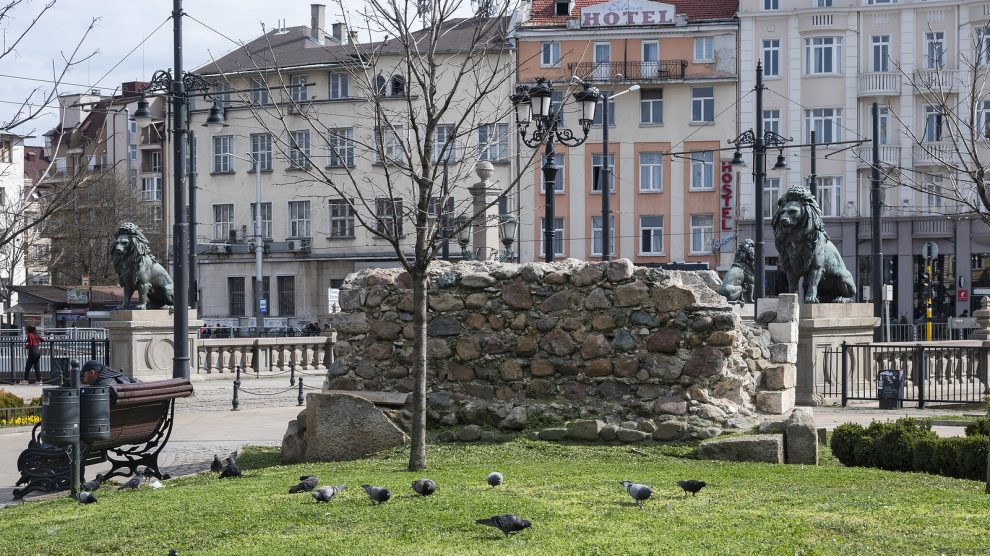Bulgaria’s economic growth will continue to slow in 2023. Structural issues in its economy will only worsen until its political instability is resolved.
Home to 6.8 million people, Bulgaria has seen its exports boom and economy resist contraction in the face of domestic political instability and the war in Ukraine.
Indeed, Bulgaria’s official exports to Ukraine tripled in 2022—led by fuel exports ironically produced from Russian oil—and the country indirectly channelled as much as one billion euros of weaponry to Kyiv via Poland and Romania.
- In Bulgaria, a likely new government. Just don’t call it a coalition
- How CEE can become a hub for tech talent
- Shots fired: Postcards from Koprivshtitsa
A major producer of electricity and metals, Bulgaria is home to reserves of lignite coal, lead, zinc, and copper and its location on the Black Sea and border with Turkey make it vitally important to pipeline and shipping routes. Bulgaria also builds much of the machinery instrumental to manufacturing and construction around the world.
It is also increasingly a centre for tech in South East Europe. In the latest edition of the Emerging Europe IT Competitiveness Index, Bulgaria ranked tenth out of the 23 countries in the region and eighth in the region for IT infrastructure and talent. Payhawk, a payment and expense solution fintech platform, became Bulgaria’s first unicorn last year, less than four years after being founded.
While economic activity slowed last year, gross domestic product (GDP) growth exceeded expectations at 3.4 per cent for 2022. This growth was largely driven by private and public consumption and the net export of services as tourism recovered from the pandemic.
2023: The story so far
Dr Rumen Dobrinsky, a senior research associate at the Vienna Institute for International Economic Studies (wiiw) who authored its April forecast for Bulgaria, tells Emerging Europe, “The most recent months witnessed further economic slowdown, provoked by both external and domestic factors. This is most pronounced in manufacturing and exports due to the weakening demand in Western Europe.”
The demand for weapons and fuel in Ukraine has remained steady, however, and some Bulgarian companies have announced expansions in their production capacities. Ukrainian demand is expected to stay strong for at least as long as the war continues.
“At the same time,” Dr Dobrinsky says, “interest rates keep rising which suppresses credit demand. In consequence, private consumption, which was the main driver of growth, is also weakening.”
Consumer prices, as measured by the Harmonised Index of Consumer Prices (HICP), are expected to decrease from 13 per cent in 2022 to 10 per cent this year and seven per cent next year. Dr Dobrinsky forecasts GDP growth in 2023 of 1.7 per cent.
Negative demographic trends represent a long-term structural challenge to continued growth. “The labour force keeps shrinking, which is a lasting trend, due to population ageing,” Dr Dobrinsky says. “This prompts chronic labour shortages in many sectors. The tight labour market pushes wages up and they keep growing faster than labour productivity.”

An end to political instability?
Another structural challenge is the utter disfunction of Bulgaria’s politics. Five parliamentary elections have been held since 2020, but none have delivered any party a conclusive mandate for governance. This political instability has ground to a halt progress on major policy priorities like joining the Schengen Area, eurozone, and the Organisation for Economic Co-operation and Development (OECD). It also jeopardises access to EU Recovery Plan funds and has contributed to the deterioration of Bulgaria’s fiscal condition.
Bulgaria’s finance ministry estimates that without urgent corrective measures the cash deficit could reach six to seven per cent of GDP in 2023. Public spending in 2023 has continued at exceptionally high, pandemic levels because Bulgaria’s parliament has lacked the regular government needed to adopt a budget for the current year, forcing public spending to continue at levels specified in the previous year’s budget.
Addressing fiscal issues would require cutting public spending or raising taxes, neither of which are likely to be politically popular and are thus unlikely to be implemented until there is some return to political stability.
The latest of Bulgaria’s elections was on April 2, and while no political party emerged as the decisive victors, the two largest parties, the centre-right GERB and an anti-corruption bloc led by We Continue the Change and Democratic Bulgaria (PP-DB), agreed on May 22 to form a government in a bid to end years of political deadlock. PP-DB had previously stated it would never work with GERB, and on May 23, Kiril Petkov, a former prime minister and one of We Continue the Change’s leaders, apologised to voters for the deal and stressed it was a power sharing arrangement but not a coalition.
When asked what this deal could mean for Bulgaria’s economy, Dr Dobrinsky said, “Only a regular government backed by a parliamentary majority is empowered to take key policy decisions with lasting implications. But now the new coalition government is faced with the need to deal with the large fiscal gap that opened up in the last couple of years. This will be the government’s biggest policy challenge.”
Unlike many news and information platforms, Emerging Europe is free to read, and always will be. There is no paywall here. We are independent, not affiliated with nor representing any political party or business organisation. We want the very best for emerging Europe, nothing more, nothing less. Your support will help us continue to spread the word about this amazing region.
You can contribute here. Thank you.







Add Comment